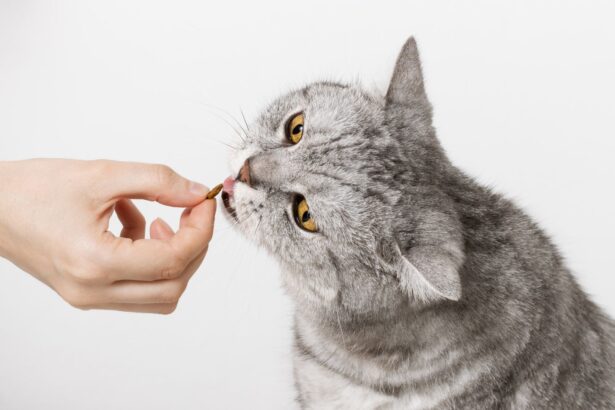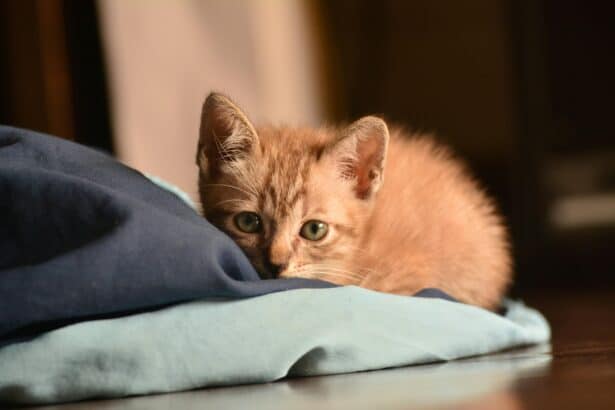Understanding the origin of the Munchkin cat
A brief history of the Munchkin cat
The Munchkin’s characteristic appearance appeared on the cat scene relatively late. It was only officially recognized as a distinct breed in the 1990s. The genetic mutation responsible for the short stature of these cats was first observed in the USA, but cats with similar characteristics had been spotted in other parts of the world long before this. Despite initial protests from those who believed their unusual stature could cause health problems, the breed was eventually accepted by various breed federations, which largely contributed to its growing popularity.
The role of genetics in the Munchkin
The Munchkin’s most notable feature is undoubtedly its short legs, the direct result of a dominant gene. Despite initial concerns about possible health problems caused by this gene, studies have shown that Munchkins are generally healthy. They have no increased likelihood of developing joint or spinal problems, as might be expected. As a result, their life expectancy is comparable to that of most other cat breeds, provided they receive proper care.
Munchkin cat characteristics
Munchkin’s physical appearance
In addition to their short legs, Munchkins can be very diverse in appearance. Their hair can be short or long, depending on their parents’ genetic heritage. Their coat color and pattern can also vary endlessly, giving rise to a great diversity of specimens within the breed. So, above all, it’s their fun and agility that come through in their movements, a characteristic they share with other short-legged cat breeds, such as Basset Hounds in dogs.
Munchkin behavior and personality
Munchkins are renowned for their sociability and affability. They are known to be very affectionate, loving to spend time with their human families. They are also very playful, showing a real enthusiasm for games and hunting. Their natural curiosity often drives them to explore their environment, and they are known to be highly intelligent, displaying a notable ability to solve problems. They often like to settle in high places, despite their short legs, and are renowned for their ability to jump on fairly high surfaces.
The Munchkin cat: health and care
Common Munchkin health problems
Although Munchkins are generally healthy cats, they may be exposed to certain health conditions specific to their breed. They may be prone to spinal disorders such as lordosis and scoliosis, although this is not particularly common. In addition, like all cats, they should undergo regular veterinary check-ups and be vaccinated and dewormed as recommended by their vet. In addition, a balanced diet and regular dental check-ups can prevent potential health problems. For more information on detecting health problems in cats, see our dedicated article.
How to care for your Munchkin cat
Munchkins need the same care as other cats in terms of veterinary care, diet and hygiene. However, their inquisitive and playful nature may require you to be creative in finding ways to provide them with the exercise they need. Playing with interactive toys and regular play sessions with their human family are all ways of ensuring their good health and happiness. For more advice on how to feed your cat properly, consult our dedicated guide.
Adopting a Munchkin cat
Where and how to adopt a Munchkin
Adopting a Munchkin requires a certain amount of research and thought. It’s important to find a reputable breeder who ensures the good health of his cats, as well as responsible genetic crossing. To do this, don’t hesitate to ask to meet the parents of the litter to check their physical condition and behavior, or to ask for information on the kitten’s family medical history. For more information on how to choose a good cat cattery, see our detailed guide.
Cost and long-term commitment
Adopting a Munchkin can be costly. As demand for these adorable cats is high and supply rather limited, the price can rise quite quickly. What’s more, it’s important to remember that having a cat is a long-term commitment that can last up to 15 years, if not more. In addition to the initial cost of their purchase, you’ll need to plan for regular expenses to care for your little companion, including food, veterinary care, litter, toys and other accessories.
Adopting a Munchkin, or any other cat, is a decision not to be taken lightly. These adorable creatures have specific needs that must be met throughout their lives. So before you commit, make sure you have the space, the time, the financial means and, above all, the desire to offer your future companion a loving and appropriate home, so that the two of you can make the most of this unique relationship.




